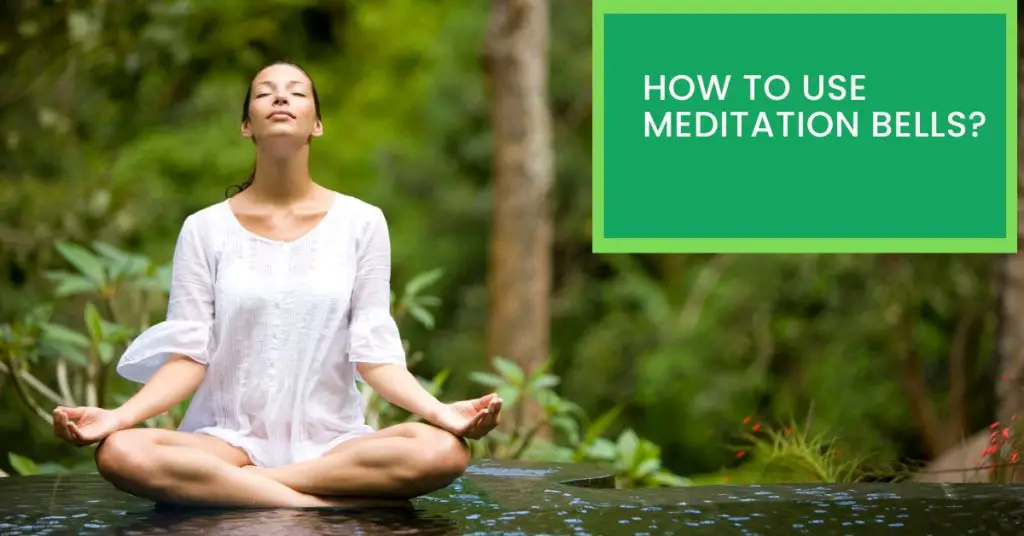Hey there! Are you looking for a way to start your day with a peaceful mind and a relaxed body? Well, have you ever considered meditating in the shower?
Yes, you read that right – shower meditation is a real thing!
You can meditate in the shower. Shower meditation is a simple and effective way to incorporate mindfulness and relaxation into your daily routine.
And in this article, we’ll explore how you can incorporate this practice into your daily routine and reap the benefits of both meditation and a refreshing shower.
First things first, let’s talk about what meditation is and why it’s so good for you. Meditation is a practice that involves training your mind to focus and be present at the moment.
It’s been scientifically proven to reduce stress, improve concentration, and increase feelings of well-being.
Now, imagine combining that with the sensory experience of a warm and soothing shower. Sounds pretty great, doesn’t it?
That’s exactly what shower meditation is all about – bringing mindfulness and relaxation into your daily shower routine.
But wait, you might be thinking, “How on earth can I meditate while washing myself?” It may seem like an odd concept, but trust us, it’s totally doable. And don’t worry, you don’t have to be a meditation expert to give it a try.
So, if you’re curious about shower meditation and want to learn more, keep reading. We’ll cover everything from the benefits of water on the body and mind to tips for creating the perfect shower meditation space. Let’s get started!

What is Meditation?
In this section, we’ll dive a little deeper into what meditation is, its history, and the different types of meditation.
Meditation is a mental practice that dates back thousands of years and is rooted in various spiritual and religious traditions.
At its core, meditation involves training the mind to focus on a specific object, such as the breath or a mantra, in order to cultivate mindfulness and inner peace.
There are many different types of meditation, each with its own unique approach and benefits. Some of the most popular types of meditation include:
- Mindfulness meditation
This type of meditation involves paying attention to your thoughts, feelings, and physical sensations in a non-judgmental way.
It’s all about being present in the moment and observing your experiences without getting caught up in them.
- Loving-kindness meditation
Also known as metta meditation, this practice involves cultivating feelings of love, kindness, and compassion towards oneself and others. It can help to reduce feelings of anger, resentment, and anxiety, and increase positive emotions like joy and gratitude.
- Visualization meditation
This type of meditation involves creating mental images or visualizations to help calm the mind and reduce stress. For example, you might visualize yourself in a peaceful natural setting or imagine a healing light surrounding your body.
No matter what type of meditation you choose, the goal is always the same – to quiet the mind and cultivate inner peace.
And when you combine meditation with the soothing sensations of a warm shower, the benefits can be even more profound. So why not give it a try and see how it feels for you?
Exploring the Connection Between Water and Meditation
In this section, we’ll explore the connection between water and meditation, and how it can enhance the benefits of meditation.
Water has long been a symbol of calmness and clarity, and it’s no surprise that it’s often used in spiritual and religious rituals.
The sound of running water, the feel of water on the skin, and the gentle steam rising from a hot shower can all help to create a peaceful and relaxing environment that’s conducive to meditation.
But there’s also a scientific basis for the connection between water and meditation. Studies have shown that the sound of water can help to induce a state of relaxation and reduce stress levels.
The rhythmic sound of running water can also help to synchronize brain waves, which can lead to a feeling of deep relaxation and heightened awareness.
Additionally, the physical sensations of water on the body can help to stimulate the release of endorphins, the body’s natural feel-good chemicals. This can lead to a sense of euphoria and well-being, which can help to deepen the meditation experience.
There are also physical benefits to meditating in the shower. The warm water can help to relax tense muscles and improve circulation, which can reduce pain and inflammation.
And the steam from the shower can help to open up the sinuses and improve respiratory function, which can make it easier to breathe and deepen the meditation experience.
So, whether you’re looking to enhance the spiritual, psychological, or physical benefits of meditation, incorporating water into your practice can be a powerful tool.
So next time you step into the shower, why not take a few moments to breathe deeply and focus your mind? You might be surprised at how transformative it can be!

Exploring the Connection Between Water and Meditation
Absolutely! In this section, we’ll explore the connection between water and meditation, and how it can enhance the benefits of meditation.
Water has long been a symbol of calmness and clarity, and it’s no surprise that it’s often used in spiritual and religious rituals.
The sound of running water, the feel of water on the skin, and the gentle steam rising from a hot shower can all help to create a peaceful and relaxing environment that’s conducive to meditation.
But there’s also a scientific basis for the connection between water and meditation.
Studies have shown that the sound of water can help to induce a state of relaxation and reduce stress levels.
The rhythmic sound of running water can also help to synchronize brain waves, which can lead to a feeling of deep relaxation and heightened awareness.
Additionally, the physical sensations of water on the body can help to stimulate the release of endorphins, the body’s natural feel-good chemicals.
This can lead to a sense of euphoria and well-being, which can help to deepen the meditation experience.
There are also physical benefits to meditating in the shower. The warm water can help to relax tense muscles and improve circulation, which can reduce pain and inflammation.
The steam from the shower can help to open up the sinuses and improve respiratory function, which can make it easier to breathe and deepen the meditation experience.
So, whether you’re looking to enhance the spiritual, psychological, or physical benefits of meditation, incorporating water into your practice can be a powerful tool.
So next time you step into the shower, why not take a few moments to breathe deeply and focus your mind? You might be surprised at how transformative it can be!
Understanding the Science Behind Meditation in the Shower
In this section, we’ll explore the science behind shower meditation and how it can affect the body and mind.
The warm water and steam from the shower can have a profound impact on the body. The heat can help to dilate blood vessels, which can increase blood flow and deliver more oxygen to the body’s cells. This can help to reduce inflammation and improve overall health.
The steam from the shower can also help to open up the pores of the skin, which can allow toxins to be released and improve the skin’s appearance.
In addition, the steam can help to moisten the nasal passages and improve respiratory function.
When it comes to meditation, the warm water and steam can help to create a calming and relaxing environment that’s conducive to mindfulness.
The steam can help to create a sense of weightlessness and disconnection from the outside world, which can make it easier to focus on the present moment.
During shower meditation, it’s common to focus on the sensation of the water on the skin and the sound of the running water.
This can help to bring a sense of mindfulness and present-moment awareness to the meditation practice.
In addition, the connection between breathing and relaxation is well-established. Deep, slow breathing can help to calm the mind and reduce stress levels.
The warm water and steam from the shower can make it easier to breathe deeply and fully, which can enhance the benefits of meditation practice.
Finally, the release of endorphins during shower meditation can help to create a sense of euphoria and well-being, which can make the meditation practice even more enjoyable and beneficial.
Overall, there is a strong scientific basis for the benefits of shower meditation. So next time you step into the shower, take a few deep breaths and allow yourself to fully immerse in the experience.
You may be surprised at how transformative it can be for both your body and mind.

Can You Meditate in the Shower?
If you’re someone who struggles to find time for meditation in your busy schedule, you may be wondering if you can incorporate meditation into your daily shower routine.
The good news is that shower meditation is a real thing and can be a convenient and effective way to fit meditation into your busy life.
But is it actually possible to meditate in the shower? The answer is yes! With a few simple techniques and some mindfulness practice, you can turn your daily shower into a relaxing and rejuvenating meditation experience.
Let’s explore the pros and cons of shower meditation and discuss how to prepare for a successful shower meditation session.
Pros:
- Convenience:
One of the biggest advantages of shower meditation is its convenience. You don’t need any special equipment or a dedicated space to practice meditation. You can simply incorporate it into your daily shower routine.
- Relaxation:
The warm water and steam from the shower can help to create a sense of relaxation and calmness, which can enhance the benefits of meditation practice.
- Accessibility: For those who find it difficult to sit still for long periods of time, shower meditation can be a more accessible alternative that still allows for the benefits of mindfulness.
Cons:
- Safety:
It’s important to practice safety when meditating in the shower. Make sure the temperature is not too hot and that you have good footing to prevent slipping and falling.
- Distractions:
The running water and other noises in the bathroom can be distracting, making it difficult to fully focus on the meditation practice.
- Time:
For those with busy schedules, finding time for a longer shower meditation practice can be challenging.
Tips for beginners:
- Start small:
Begin with a shorter meditation practice, such as just a few minutes, and gradually work your way up to longer sessions.
- Set the mood:
Create a relaxing environment in your bathroom by adding candles, incense, or soothing music.
- Focus on the senses:
Use the sensation of the water and the sound of the running water to bring your attention to the present moment and enhance your mindfulness practice.
Overall, shower meditation can be a great addition to your self-care routine, providing both physical and mental health benefits.
With a little practice and some tips to get started, you can incorporate this practice into your daily routine and reap the rewards.

Different Types of Meditation Techniques for Shower Meditation
In this section, we’ll explore different types of meditation techniques that can be adapted for shower meditation.
- Mindfulness meditation:
This is a popular form of meditation that involves bringing your attention to the present moment and observing your thoughts and feelings without judgment.
In the shower, you can focus on the sensation of the water on your skin, the sound of the running water, and the smells of your shampoo and soap.
- Loving-kindness meditation:
This form of meditation involves cultivating feelings of love, kindness, and compassion towards yourself and others.
In the shower, you can focus on sending these positive feelings to yourself and others while feeling the warmth of the water and visualizing the water washing away any negative energy.
- Visualization meditation:
This form of meditation involves using your imagination to create a peaceful and calming mental image.
In the shower, you can visualize a calming scene, such as a peaceful beach or a tranquil forest, while feeling the water washing away any stress or tension.
Each of these meditation techniques can be adapted to suit your needs and preferences during a shower meditation practice. Experiment with different approaches and find what works best for you.
Remember, the key is to stay present and focused on the present moment.

Tips for Creating the Perfect Shower Meditation Space
In this section, we’ll discuss tips for creating the perfect shower meditation space.
- Choose the right showerhead:
A good showerhead can make a big difference in your shower meditation experience. Consider getting a showerhead with adjustable water pressure or massage settings that can help you relax and feel more comfortable.
- Set the right temperature:
The temperature of your shower can also affect your ability to meditate. Experiment with different temperatures to find the one that feels most comfortable and relaxing for you.
- Add soothing elements to the bathroom:
Creating a soothing environment can enhance your meditation practice. Consider adding elements such as plants, candles, or essential oil diffusers to your bathroom to create a calming atmosphere.
Remember, the goal is to create a peaceful and relaxing environment that supports your meditation practice.
By setting the right tone and atmosphere, you can create the perfect shower meditation space that helps you feel more grounded and centered.
How Can You Meditate While Taking a Shower?
In this section, we’ll discuss how to meditate while taking a shower and some techniques to help you stay present and focused.
- Step-by-step guide:
To meditate in the shower, start by standing comfortably under the water and taking a few deep breaths.
Then, focus on the sensation of the water on your skin and the sound it makes as it flows.
Try to be fully present at the moment and let go of any distracting thoughts or worries.
- Techniques for staying present:
One technique to help you stay present during shower meditation is to focus on your senses.
Notice the temperature and texture of the water, the scent of your soap or shampoo, and the sounds of the water.
Another technique is to use affirmations or mantras to help you stay centered and focused.
- The importance of breathing:
Breathing is an essential component of meditation, and it can help you relax and stay present. Focus on taking slow, deep breaths and exhaling slowly.
This can help you release tension and let go of any stressful thoughts or feelings.
By using these techniques, you can learn to stay present and focused during your shower meditation practice.
Remember, the goal is to let go of any distractions and allow yourself to be fully present at the moment.
How Long Should You Meditate in the Shower?
In this section, we’ll discuss how long you should meditate in the shower and the benefits of longer shower meditations.
- The ideal duration:
The ideal duration for a shower meditation can vary depending on your schedule and personal preferences. Some people prefer shorter meditations, while others find longer sessions more beneficial. Start with a duration that feels comfortable for you and gradually increase it over time.
- The benefits of longer sessions:
Longer shower meditation sessions can offer additional benefits, such as deeper relaxation and a greater sense of calm. Longer sessions also give you more time to focus on your breath and let go of any distracting thoughts or worries.
- How to work your way up to longer sessions:
If you’re new to shower meditation, start with shorter sessions and gradually work your way up to longer ones. You may find it helpful to set a timer or use a guided meditation app to help you stay on track.
Remember, the goal is to find a duration that works for you and supports your meditation practice. Whether you prefer shorter or longer sessions, consistent practice can help you experience the benefits of shower meditation.

What Are the Benefits of Shower Meditation?
In this section, we’ll explore the many benefits of shower meditation for your overall well-being, including the physical, mental, and spiritual benefits.
1. The physical benefits
Shower meditation can have a positive impact on your physical health by reducing tension in your muscles and improving blood flow. This can lead to reduced pain, improved immune system function, and better overall physical health.
2. The mental health benefits
Shower meditation can also have a positive impact on your mental health by reducing stress and anxiety, improving your mood, and increasing your overall sense of well-being.
It can also help you develop a greater sense of self-awareness and emotional resilience.
3. The spiritual benefits
Finally, shower meditation can help you connect with your spiritual self by allowing you to be present in the moment and tune into your innermost thoughts and feelings.
This can lead to greater peace, joy, and a deeper sense of purpose in life.
Shower meditation can offer a wide range of benefits for your mind, body, and spirit.
By making it a regular part of your self-care routine, you can experience greater overall health and well-being.
How Shower Meditation Can Improve Your Mental Health
In this section, we’ll dive deeper into how shower meditation can improve your mental health and why it’s such a powerful tool for reducing stress and anxiety.
- Reducing anxiety
Shower meditation is a great way to reduce anxiety and promote relaxation.
By focusing on your breathing and being present at the moment, you can calm your mind and reduce feelings of stress and tension.
- Improving mood
Studies have shown that meditation, in general, can help improve mood and reduce symptoms of depression. Shower meditation is no exception.
By taking time to focus on your thoughts and emotions, you can gain greater clarity and perspective on your life, leading to a more positive outlook.
- Improving sleep quality
Finally, shower meditation can help improve your sleep quality by promoting relaxation and reducing stress levels.
When you’re able to quiet your mind and release tension in your body, you’re more likely to fall asleep quickly and sleep more deeply throughout the night.
Overall, shower meditation is a powerful tool for improving your mental health and well-being.
By incorporating it into your daily routine, you can reduce stress, anxiety, and other negative emotions, leading to a greater sense of peace and happiness.

Conclusion
In conclusion, shower meditation is a simple yet powerful way to incorporate mindfulness and relaxation into your daily routine.
Throughout this article, we’ve explored the definition and history of meditation, the benefits of water on the mind and body, the science behind shower meditation, different techniques for shower meditation, tips for creating the perfect shower meditation space, and the potential benefits of incorporating shower meditation into daily life.
By practicing shower meditation, you can experience improved mental health, reduced stress and anxiety, and a deeper sense of inner peace.
Whether you’re new to meditation or a seasoned practitioner, shower meditation can be a refreshing and rejuvenating addition to your self-care routine.
So, go ahead, and give shower meditation a try! Experiment with different techniques, essential oils, and mindfulness practices to find what works best for you.
Incorporate it into your daily routine and notice the positive changes in your mental and physical well-being.
Remember, the benefits of meditation are not just limited to the shower. By incorporating mindfulness and relaxation practices into all aspects of your life, you can experience a greater sense of calm and balance.
So, start small, be consistent, and enjoy the many benefits that shower meditation and meditation as a whole can bring to your life.
Frequently Asked Questions
Is it OK to meditate on sounds?
Yes, it is perfectly okay to meditate on sounds. In fact, many people find it helpful to use sounds such as nature sounds, white noise, or meditation music to help them focus and relax during their meditation practice.
It can also be a useful tool for beginners who may find it difficult to sit in complete silence.
How long should I meditate?
The ideal duration for a meditation session varies from person to person and depends on individual needs and preferences. As a beginner, it’s recommended to start with short sessions of 5-10 minutes and gradually increase the duration over time.
Some experienced meditators prefer longer sessions of 30 minutes or more. Ultimately, the goal is to find a duration that works for you and allows you to experience the benefits of meditation.
Why do monks meditate so much?
Monks meditate so much because it is a core practice in their spiritual and religious traditions. Meditation is seen as a way to quiet the mind, develop mindfulness, and cultivate inner peace and wisdom. By dedicating themselves to regular meditation practice, monks are able to deepen their spiritual connection and strengthen their mental and emotional well-being.
Additionally, many monastic communities place a strong emphasis on simplicity and detachment from material distractions, which allows for more time and focus on meditation.










